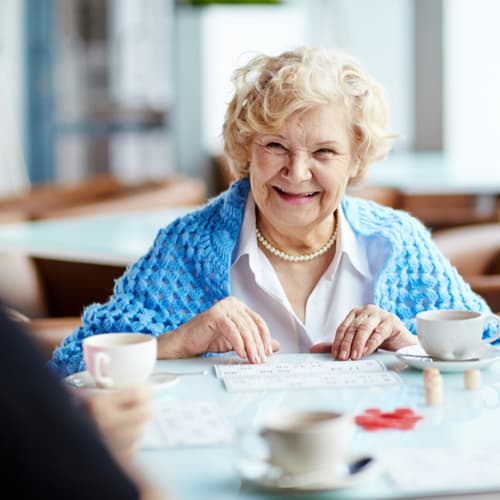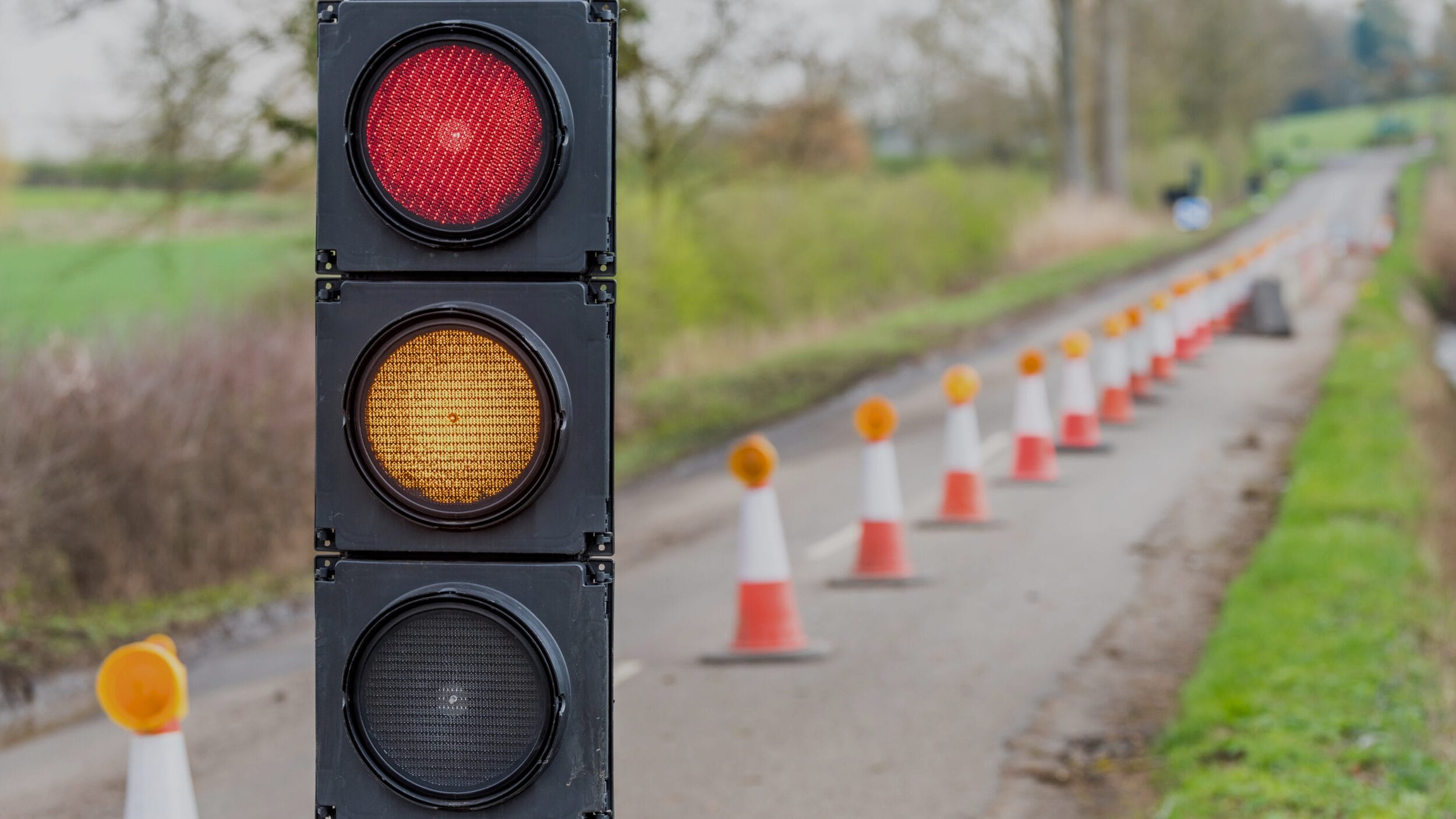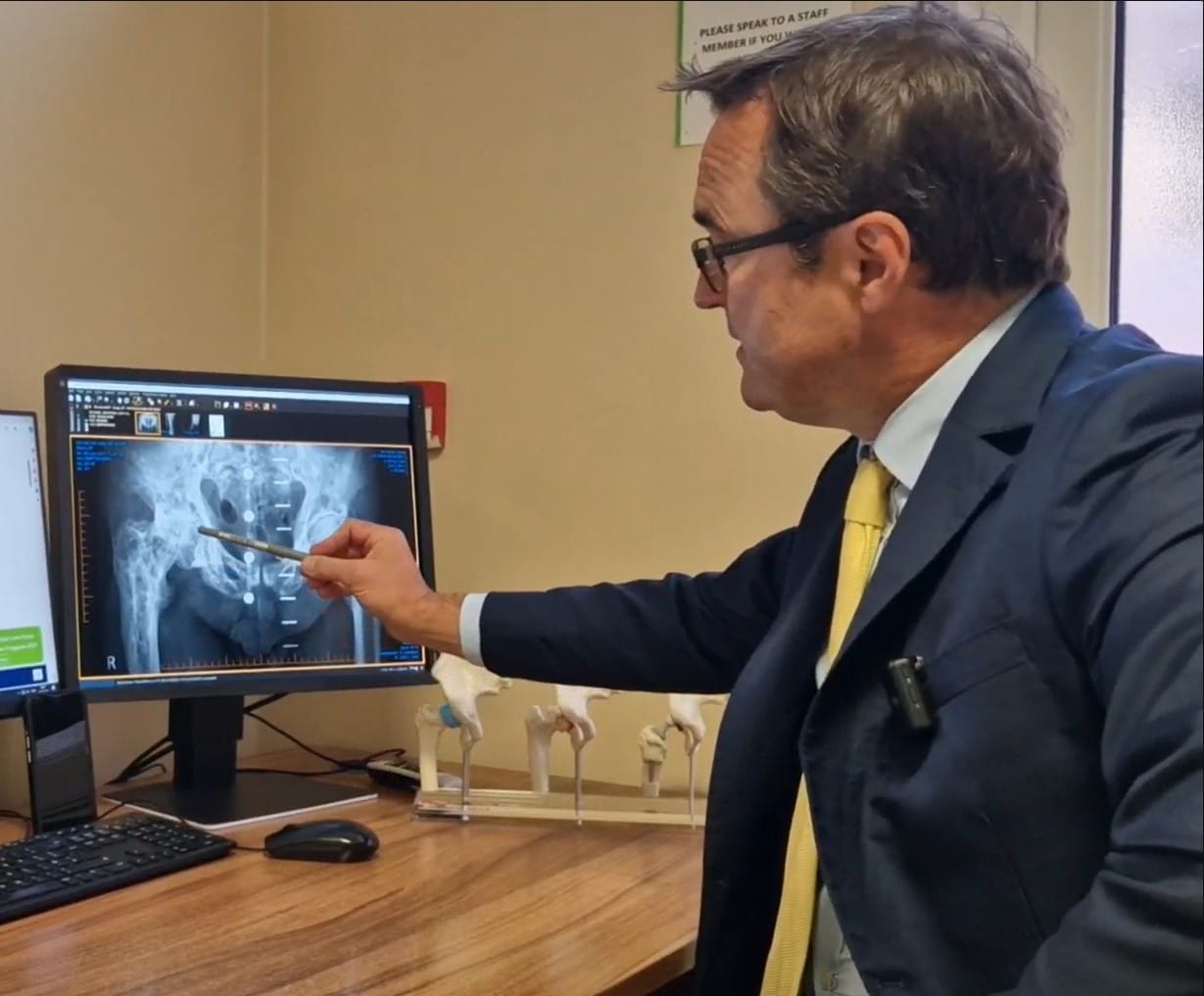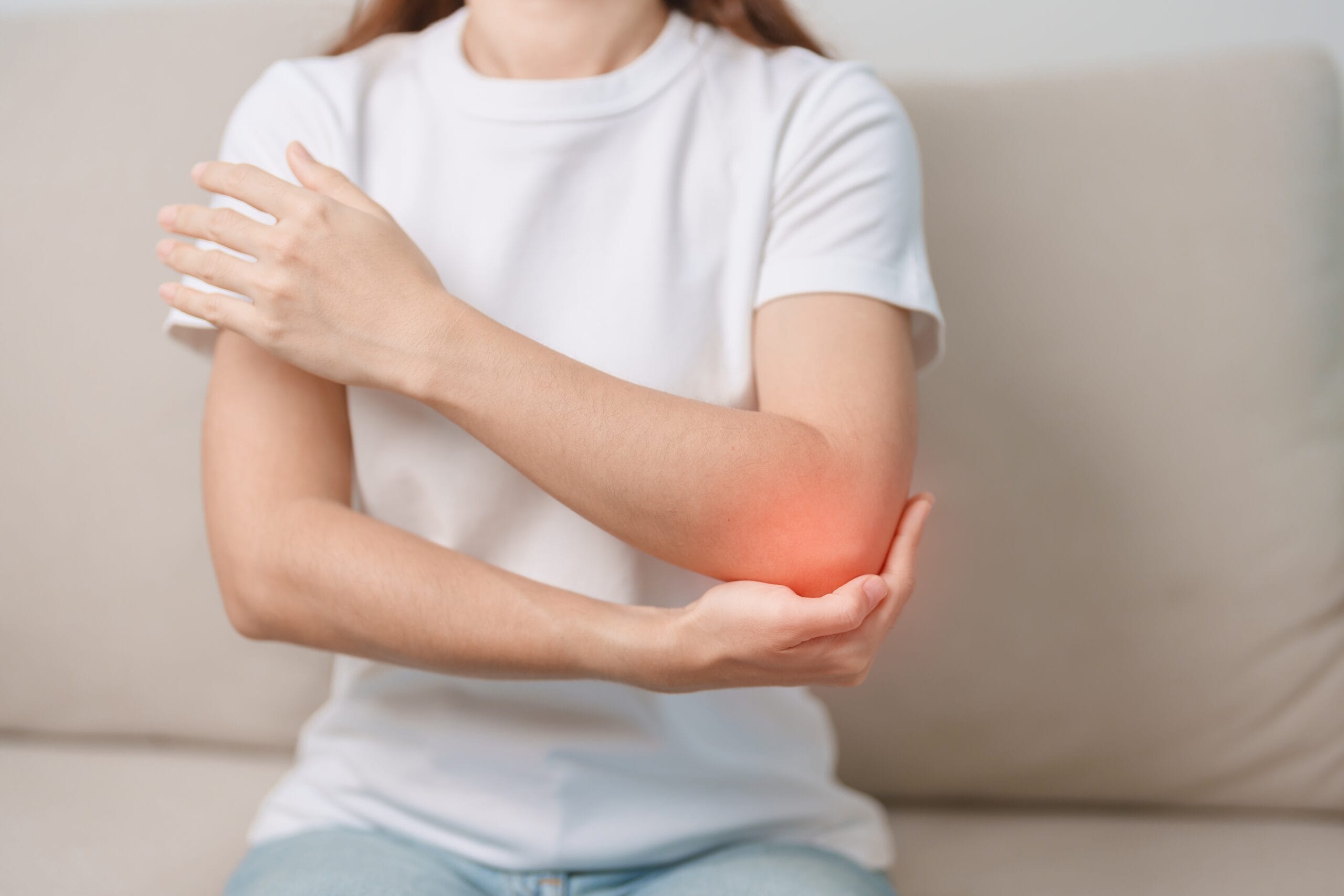by Physiotherapist Martin Dickson
Exercise is something we should probably all do a little more of, but this is especially true for people with osteoarthritis. Osteoarthritis is a disease of the joints, such as the hip or knee, which affects at least 8 million people in the UK alone.
When the joint loses cartilage through wear and tear, the body lays down more bone to try and repair the damage. However, instead of making things better, the bone grows abnormally, making the joint misshapen and can make the joint painful, swollen and stiff, leading to a reduction in activity or function.
Normal activities of daily living can become more difficult to complete, such as walking, stair climbing or housekeeping. In some cases, where the arthritis is more advanced, surgery to replace the joint is carried out. Getting active and participating in exercise allows people to get used to regular activity, which can help to alleviate symptoms prior to surgery and help people adhere to post-operative rehabilitation programmes.
The deconditioning cycle
There is a common symptom trend associated with osteoarthritis, which starts with joint pain. When we are in pain, we are more reluctant to move and can become more sedentary. Over time, this can lead to the joints getting a little stiffer and the muscles become deconditioned and weaker. This means less support around the joint and in turn, leads to more pain when moving. We call this the deconditioning cycle.
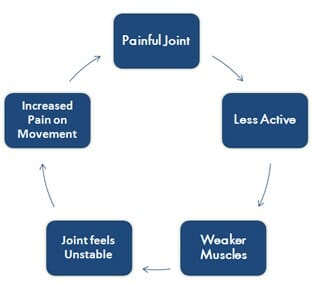
Avoid the cycle of pain and inactivity
Although there is currently no cure for osteoarthritis, exercise has been shown to alleviate the symptoms of the disease and can help better manage the implications it can have on life.
Many people with arthritis often worry that exercise can harm the joints, but this is not true. It is normal to sometimes feel a little sore or uncomfortable after exercising, but regular exercise is essential in managing the symptoms of osteoarthritis. Regular exercise helps to strengthen the muscles that support the joints and this in turn can help to alleviate the forces going through the joints when moving, helping to improve the levels of pain. When there is less pain, it is common to see an improvement in physical function and greater participation in social, domestic, occupational and recreational activity. Other benefits include an increase in energy, improved heart and lung function, improved balance, reduced cholesterol, boosted immunity and better weight management.
The effects of exercise in osteoarthritis
Exercise does not have to be very rigorous to be beneficial. Gentle stretching or Tai Chi can improve balance and helps keep the joints moving, whilst walking can dramatically improve fitness and reduce joint pain. We should all aim to complete 30 minutes of exercise five times per week, but similarly little and often works well too. A combination of stretching, strengthening and fitness exercises will help gain a more balanced improvement in function.
Whether you exercise alone or as part of a group, the benefits of an active lifestyle are clear. With any exercise you should always consult your GP or healthcare professional prior to starting a new exercise regime to ensure you are doing it safely. Start slowly and gradually increase the amount you are doing and you can start to better manage your arthritis for a more active, healthy lifestyle.
What makes Horder Healthcare unique
Horder Healthcare is committed to providing the very best quality of care for our patients and customers. We are continuously working on improving and reducing risks and this is reflected in our consistently high CQC results, patient satisfaction questionnaires and minimal levels of infection.
We are a charity
We reinvest our profit to benefit more people and help us achieve our aim of advancing health.
